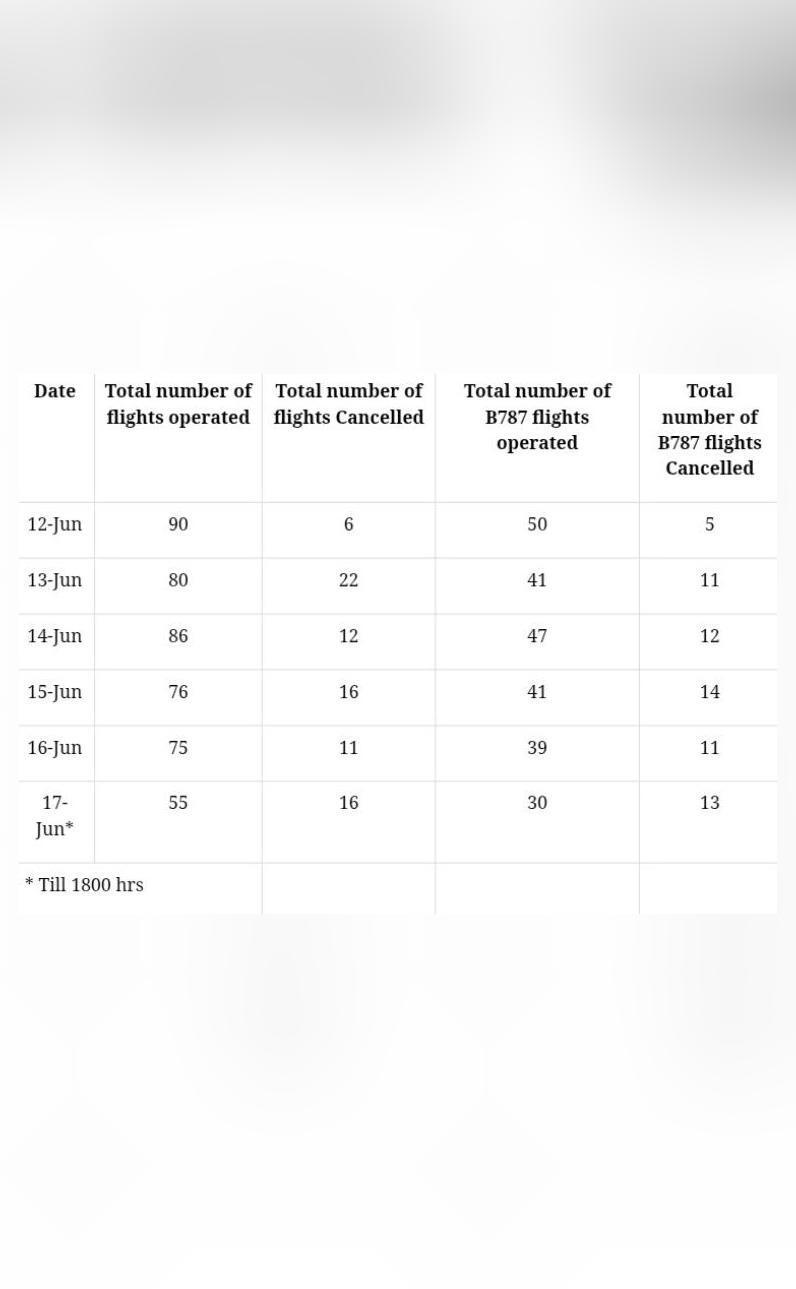
66 Air India flights cancelled between June 12 & 17 were Boeing 787 planes: DGCA
In a recent report, the Directorate General of Civil Aviation (DGCA) has shed light on the operational issues faced by Air India and Air India Express, including the cancellation of a significant number of flights. The report was released after a thorough review of the operations of both airlines, which was prompted by the crash of an Air India Boeing 787-8 Dreamliner in Ahmedabad.
According to the report, between June 12 and 17 (till 6 pm), a total of 83 flights in Air India’s wide-body operations were cancelled. This is a staggering number, and it’s essential to understand the reasons behind these cancellations to ensure the safety and efficiency of air travel in India.
The DGCA report revealed that 66 of these cancellations were Boeing 787 flights, which accounts for a significant 80% of the total cancellations. This raises concerns about the reliability and maintenance of these aircraft, and it’s crucial for the airline and regulatory authorities to take immediate action to rectify the issue.
The Boeing 787 Dreamliner is a state-of-the-art aircraft, known for its fuel efficiency and advanced technology. However, it has been plagued by issues in the past, including battery fires and other technical problems. The recent cancellations of Air India’s Boeing 787 flights may be related to these issues, or it could be a result of maintenance or other operational problems.
Air India has been facing several challenges in recent times, including financial difficulties and a shortage of pilots. The airline has been struggling to maintain its fleet and operations, which has resulted in frequent delays and cancellations. The cancellation of 66 Boeing 787 flights is a significant setback for the airline, and it’s essential for them to take immediate action to resolve the issue.
The DGCA report has also highlighted other operational issues faced by Air India and Air India Express. The report mentioned that there were instances of technical glitches, crew availability issues, and weather-related disruptions that contributed to the cancellations. However, the cancellation of 66 Boeing 787 flights is a separate issue that requires immediate attention.
In response to the report, Air India has promised to take necessary steps to rectify the issue and restore its wide-body operations. The airline has also assured that it is working closely with the DGCA to ensure that all necessary safety measures are in place.
The cancellation of Air India’s Boeing 787 flights has far-reaching implications for passengers and the airline industry as a whole. Passengers who were affected by the cancellations have been left stranded, and many have been forced to make alternative arrangements. The airline’s reputation has also taken a hit, and it’s essential for them to take immediate action to restore confidence in their operations.
In conclusion, the cancellation of 66 Air India flights between June 12 and 17, which were all Boeing 787 planes, is a significant issue that requires immediate attention. The DGCA report has highlighted the operational issues faced by Air India and Air India Express, and it’s essential for the airline to take necessary steps to rectify the issue and restore its wide-body operations.
Passengers who were affected by the cancellations deserve to know the reasons behind them and what steps the airline is taking to prevent such incidents in the future. The airline industry is built on trust, and it’s essential for airlines to maintain the highest standards of safety and reliability to ensure the confidence of passengers.
As the investigation into the crash of the Air India Boeing 787-8 Dreamliner in Ahmedabad continues, it’s essential for the airline and regulatory authorities to take a closer look at the operational issues faced by Air India and Air India Express. The cancellation of 66 Boeing 787 flights is a significant setback for the airline, and it’s crucial for them to take immediate action to restore its operations and regain the trust of passengers.






